Year 5
The English curriculum is built around the three interrelated strands of language, literature and literacy. Teaching and learning programs should balance and integrate all three strands. Together, the strands focus on developing students' knowledge, understanding and skills in listening, reading, viewing, speaking, writing and creating. Learning in English builds on concepts, skills and processes developed in earlier years, and teachers will revisit and strengthen these as needed.
In Years 5 and 6, students communicate with peers and teachers from other classes and schools, community members, and individuals and groups, in a range of face-to-face and online/virtual environments.
Students engage with a variety of texts for enjoyment. They listen to, read, view, interpret and evaluate spoken, written and multimodal texts in which the primary purpose is aesthetic, as well as texts designed to inform and persuade. These include various types of media texts including newspapers, film and digital texts, junior and early adolescent novels, poetry, non-fiction and dramatic performances.
The range of literary texts for Foundation to Year 10 comprises Australian literature, including the oral narrative traditions of Aboriginal and Torres Strait Islander Peoples, as well as the contemporary literature of these two cultural groups, and classic and contemporary world literature, including texts from and about Asia.
Literary texts that support and extend students in Years 5 and 6 as independent readers describe complex sequences, a range of non-stereotypical characters and elaborated events including flashbacks and shifts in time. These texts explore themes of interpersonal relationships and ethical dilemmas within real-world and fantasy settings. Informative texts supply technical and content information about a wide range of topics of interest as well as topics being studied in other areas of the curriculum. Text structures include chapters, headings and subheadings, tables of contents, indexes and glossaries. Language features include complex sentences, unfamiliar technical vocabulary, figurative language, and information presented in various types of graphics.
Students create a range of imaginative, informative and persuasive types of texts including narratives, procedures, performances, reports, reviews, explanations and discussions.
(source: www.australiancurriculum.edu.au)
Achievement Standard
Receptive modes (listening, reading and viewing)
By the end of Year 5, students explain how text structures assist in understanding the text. They understand how language features, images and vocabulary influence interpretations of characters, settings and events.
When reading, they encounter and decode unfamiliar words using phonic, grammatical, semantic and contextual knowledge. They analyse and explain literal and implied information from a variety of texts. They describe how events, characters and settings in texts are depicted and explain their own responses to them. They listen and ask questions to clarify content.
Productive modes (speaking, writing and creating)
Students use language features to show how ideas can be extended. They develop and explain a point of view about a text, selecting information, ideas and images from a range of resources.
Students create imaginative, informative and persuasive texts for different purposes and audiences. They make presentations which include multimodal elements for defined purposes. They contribute actively to class and group discussions, taking into account other perspectives. When writing, they demonstrate understanding of grammar using a variety of sentence types. They select specific vocabulary and use accurate spelling and punctuation. They edit their work for cohesive structure and meaning.
(source: www.australiancurriculum.edu.au)
- Plus Plan
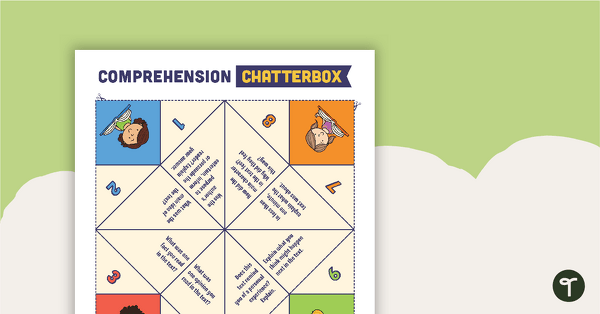
Comprehension Chatterbox
A fun reading comprehension strategy activity for students to use after reading a text.
- Plus Plan
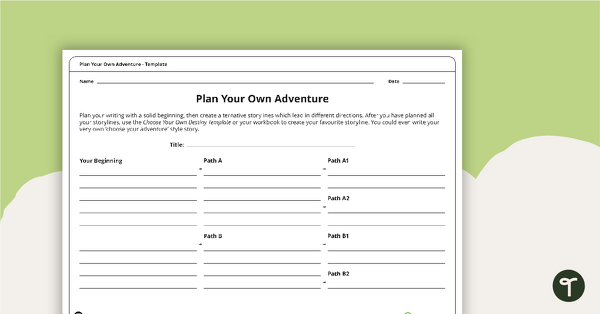
Plan Your Own Adventure - Writing Template
Students use a template to help them plan stories with alternative pathways for their friends to read.
- Plus Plan
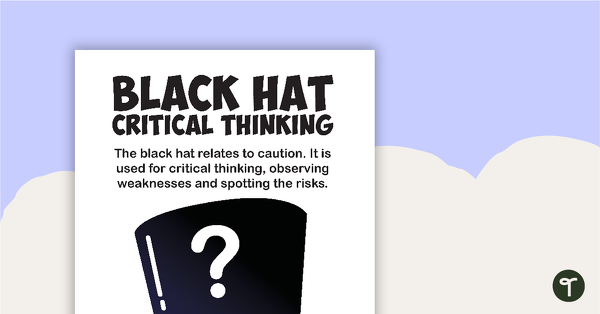
Thinking Hats for Effective Group Work
Thinking Hats based on Dr. Edward de Bono's teachings.
- Plus Plan
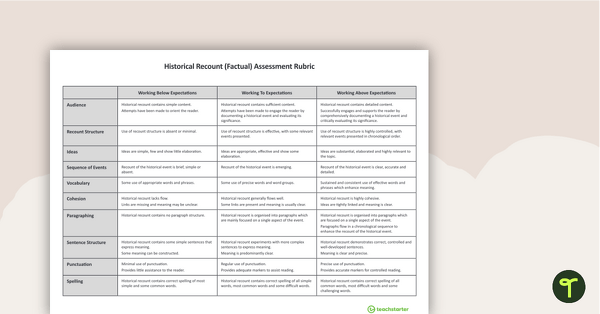
NAPLAN-Style Assessment Rubric - Historical Recounts
A NAPLAN-style rubric designed to help teachers to assess students' historical recounts.
- Plus Plan
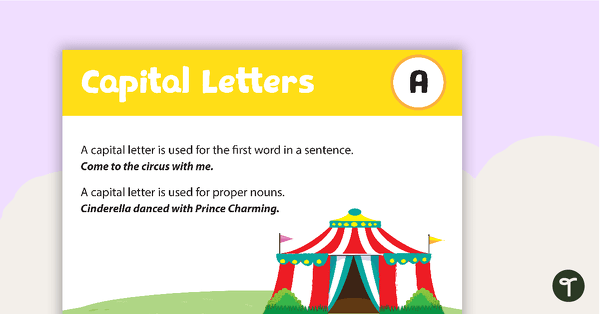
Punctuation Poster Pack
A pack of 7 posters covering punctuation marks for the early years.
- Plus Plan
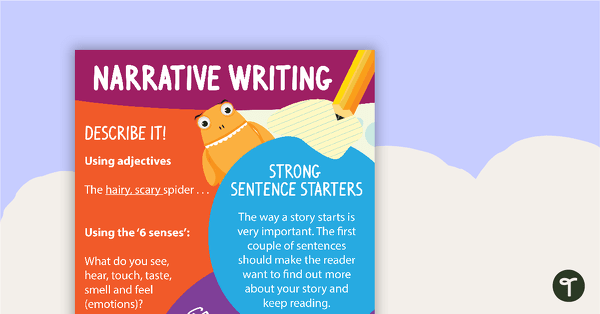
Narrative Writing Poster
A poster to encourage your students to think about narrative writing.
- Plus Plan
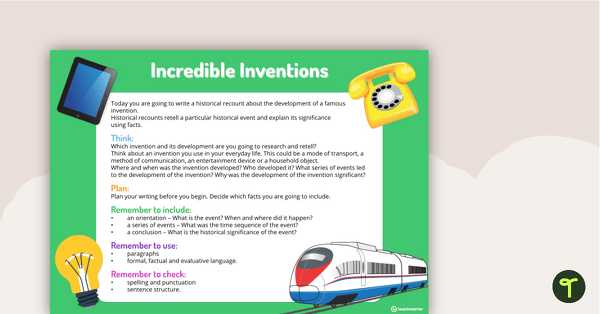
5 Historical Recount Stimulus Sheets
Writing stimulus sheets with a historical recount focus.
- Plus Plan
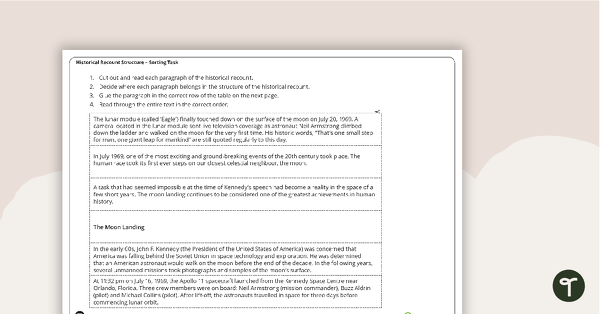
The Moon Landing - Historical Recount Structure Sorting Task
A sorting task to help students learn about the structure of a historical recount.
- Plus Plan
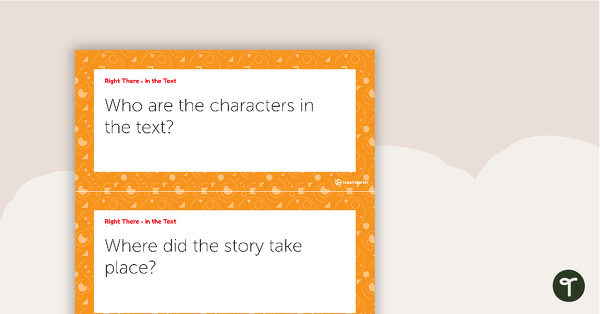
QAR Generic Question Cards
A set of 28 generic QAR question cards for students to use as a comprehension task after reading.
- Plus Plan

Queensland Cursive Entries and Exits Spaceship - Purple
A set of 12 Queensland Cursive entry and exit shuttles to join together to make a handwriting spaceship.
- Plus Plan

Queensland Cursive Entries and Exits Spaceship - Blue
A set of 12 Queensland Cursive entry and exit shuttles to join together to make a handwriting spaceship.
- Free Plan
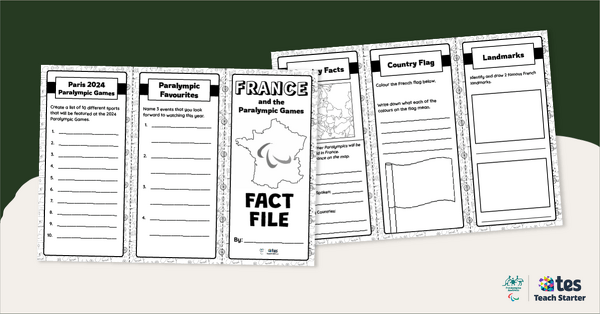
France & The Paralympic Games Brochure Template
Use this tri-fold brochure template to teach your kids to research and discover more facts about France and the Paralympics.
- Free Plan
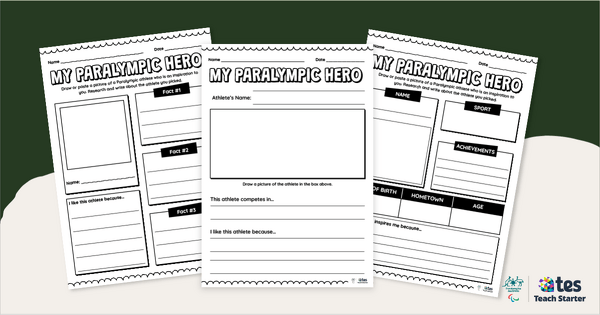
My Paralympic Hero - Athlete Bio Templates
Empower your students to learn about and honour remarkable Paralympic Athletes with these easy-to-use athlete bio templates – ideal for Years 1-5.
- Plus Plan
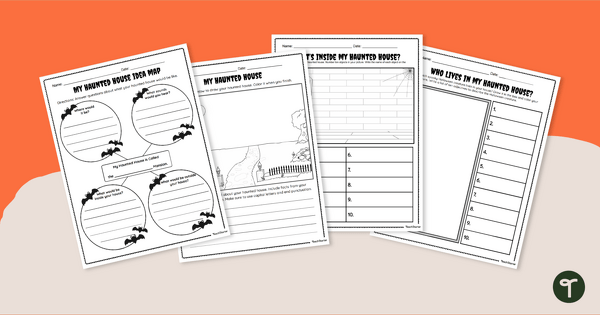
Haunted House Worksheets - Descriptive Writing Activity
Draw and write about scary Halloween houses with a printable Halloween descriptive writing activity pack.
- Plus Plan
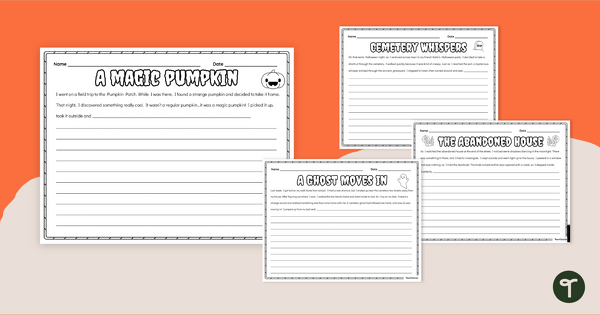
Halloween Creative Writing Prompts - Year 4 and Year 5
Develop narrative writing skills this Halloween season with a set of Halloween creative writing prompts for Year 4 and Year 5.
- Plus Plan
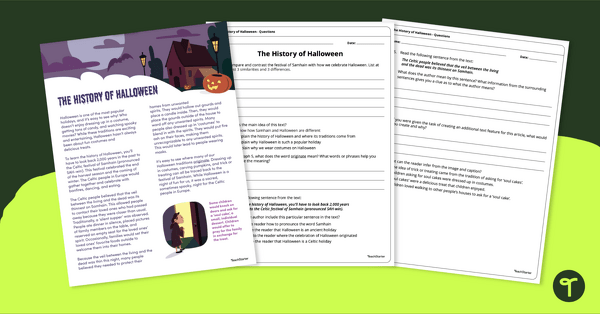
The History of Halloween – Comprehension Worksheet
Learn about the history of Halloween with a printable reading comprehension passage and questions.
- Plus Plan
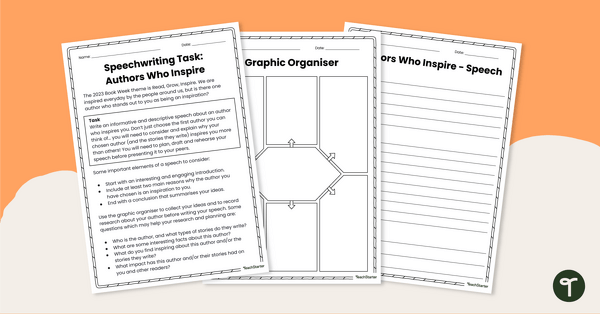
Authors Who Inspire – Speechwriting Task
Research and celebrate an inspiring author with this speechwriting activity.
- Plus Plan
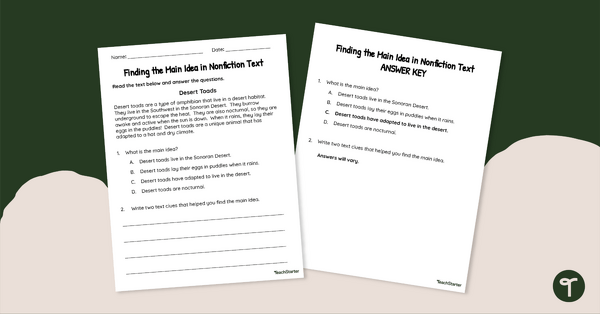
Finding the Main Idea in Nonfiction Text Worksheet
Identify supporting evidence for the main idea of an informational text passage and answer the comprehension questions.
- Plus Plan
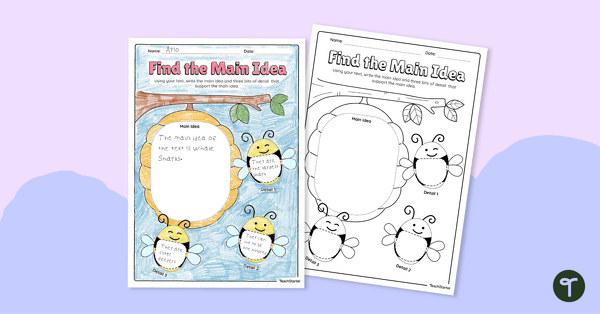
Finding the Main Idea Graphic Organiser - Beehive
A graphic organiser to help students work out the main idea and supporting detail of a text.
- Plus Plan
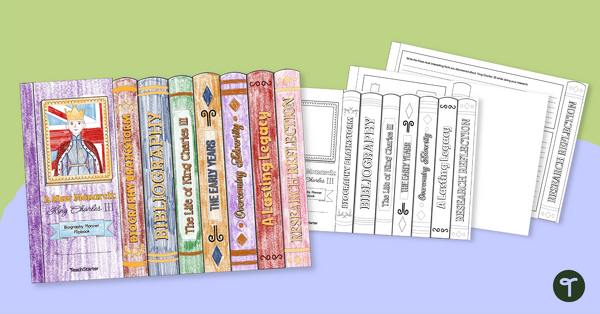
King Charles III Biography Planner Flipbook
Research and learn about King Charles III and discover biography writing.
- Plus Plan
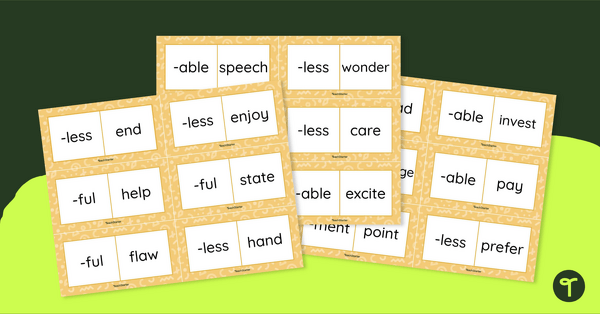
Suffix Dominoes - Vocabulary Game
Identify new words that include common suffixes with a fun suffixes vocabulary game.
- Plus Plan
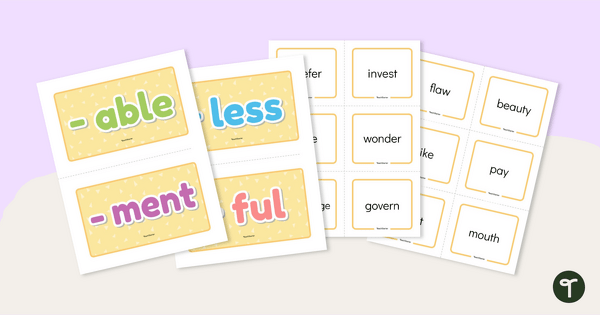
Words with Suffixes - Word Building Activity
Build words by matching the root word to suffixes and recording the new words on the answer sheet.
- Plus Plan
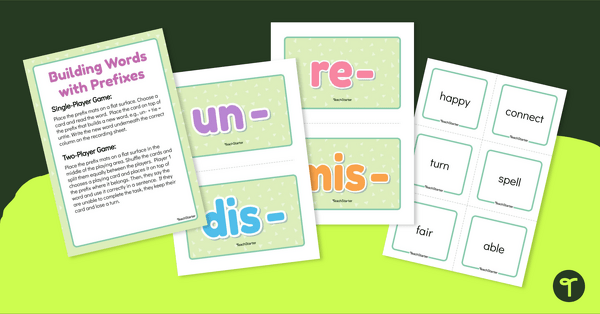
Building Words with Prefixes Sorting Activity
Build words by matching the root word to prefixes and recording the new terms on the answer sheet.
- Free Plan
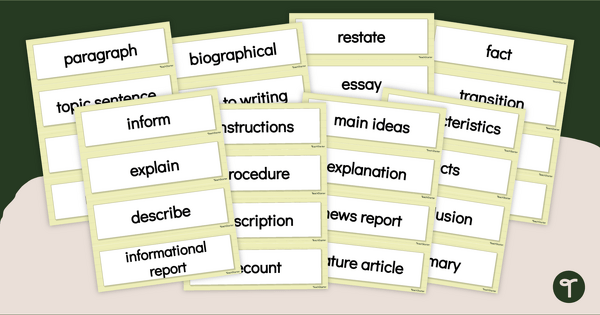
Informative Writing Word Wall
Display key vocabulary related to informative writing with a set of 48 word wall cards.
- Plus Plan
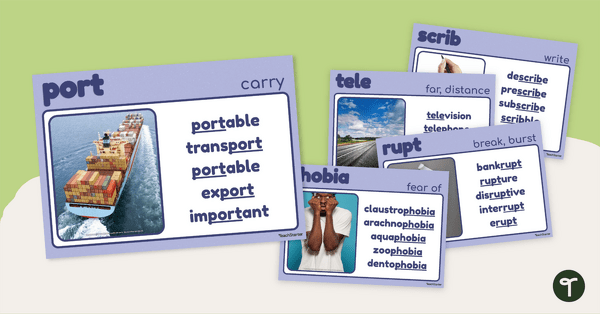
Greek and Latin Roots Poster Pack
Encourage vocabulary development with a set of 24 Greek and Latin Roots posters.
- Plus Plan
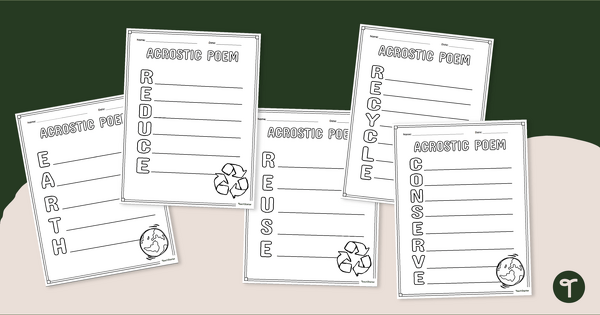
Earth Day - Acrostic Poem Template Pack
An acrostic poem template to use in the classroom to celebrate Earth Day and National Poetry Month.
- Plus Plan
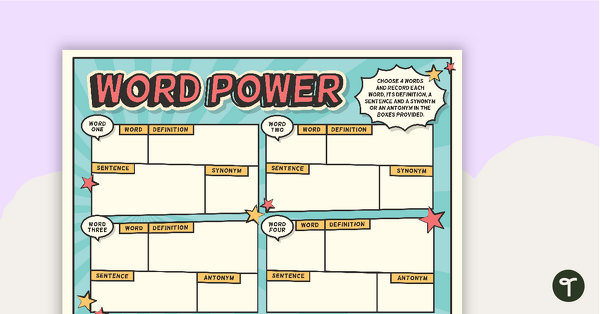
Word Power Vocabulary Worksheet
A comic book themed worksheet to use in the classroom when building vocabulary.
- Plus Plan
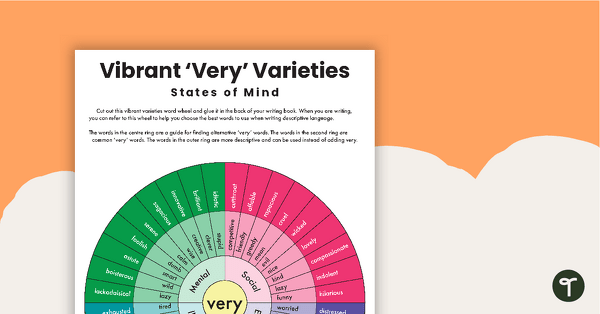
Vibrant Varieties – Other Words for 'Very' Wheel
Replace the word 'very' in your students' writings by giving them a 'wheely' good synonyms reference guide.
- Plus Plan
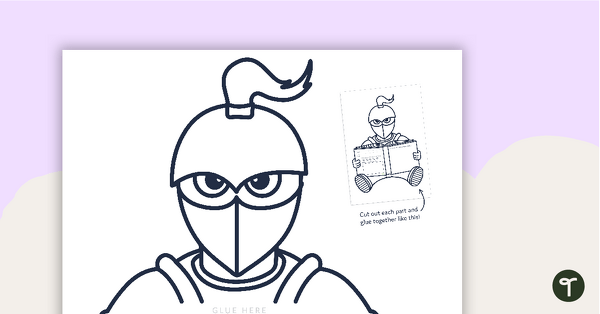
Knight Book Report Template
A book report template fit for a... knight!
- Plus Plan
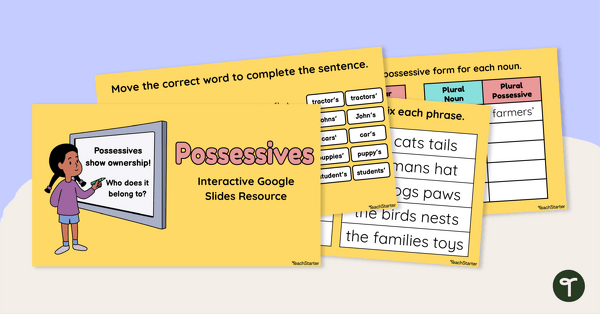
Possessive Google Interactive
Engage your learners with a Google Interactive activity designed to build skill with possessive nouns.
- Plus Plan
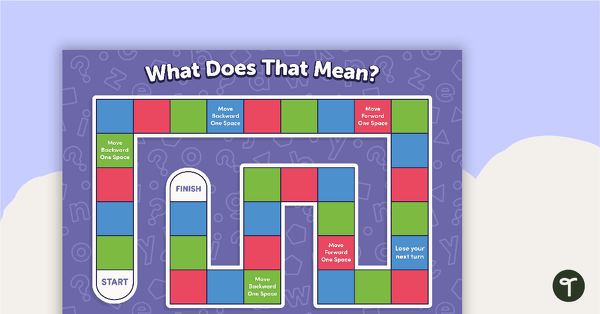
What Does That Mean? Game
A board game where students identify the correct definition of multiple-meaning words.
- Plus Plan
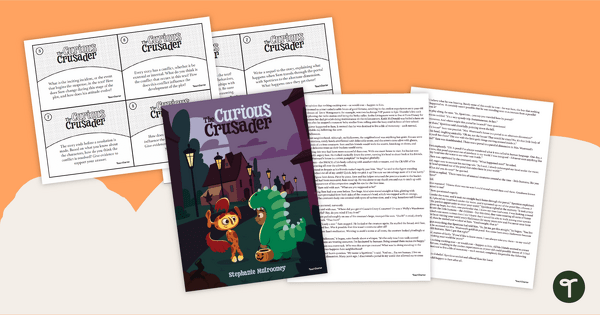
Halloween Reading Comprehension – Fiction Story and Task Cards
Practise reading comprehension skills with an exciting Halloween reading comprehension activity for Year 4 students.